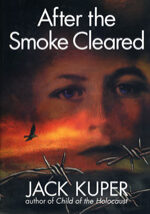In 701 B.C. the Assyrian empire was in its ascendancy. It had already vanquished the kingdom of Israel to the north including the capital at Samaria. It then prepared an assault on Judah and its capital at Jerusalem.
But in one of those significant events that changes the course of world history, Assyria was repelled. Jerusalem was saved until 586 B.C. when the Babylonians sacked the city, forcing its leadership class into exile.
Henry Aubin, in a major feat of scholarship, determines that Jerusalem was aided by a Kushite army from Africa which had marched northeast from the Nile valley. While the Bible attributes the Assyrian retreat to an angel and secular commentators cite pestilence, Aubin, in a meticulously documented work, demonstrates that an alliance with the African nation of Kush bolstered Jerusalem’s defences.
Kush, also known as Nubia, was located in what is now southern Egypt and northern Sudan. A monarchy that existed for more than 1000 years, from 900 B.C. to A.D. 350, Kushites held sway over Egypt from 712 B.C. to about 660 B.C. Of Egypt’s 31 dynasties, this, the 25th Dynasty, is the only one that all scholars agree, was black.
The commander of the Kushite expeditionary force was Taharqa (or as the Bible calls him Tirhakah). This Kushite prince, who had his own interests in halting Assyrian expansion, likely caught the aggressors by surprise as they prepared their siege of Jerusalem.
Aubin offers a thrilling military history and a stirring political analysis of the ancient world. He also sees the event as influential over the centuries.
The Kushite rescue of the Hebrew kingdom of Judah enabled the fragile, war-ravaged state to endure, to nurse itself back to economic and demographic health, and allowed the Hebrew religion, Yahwism, to evolve within the next several centuries into Judaism. Thus emerged the monotheistic trunk supporting Christianity and Islam.

“After the Smoke Cleared is as valuable a personal chronicle of the restoration of order in the post-war world — and of the restoration of self, dignity, and family — as Child of the Holocaust was for its testimony about the disintegration of these things.”
The Toronto Star
-Toronto Jewish Book Award
-finalist Edna Staebler/Creative Non-Fiction
Stoddard CAN/94 o/p
AFTER THE SMOKE CLEARED
As a little boy of nine, Jack Kuper was separated from his family during WWII and hid for four years in the Polish countryside, fleeing Nazi soldiers, and hoping that his father, who escaped to the Soviet Union, would rescue him.
After the Smoke Cleared begins at the close of WWII in war-torn Europe when Kuper, at age 15 is sent to Canada with other war orphans. Two decades later, married, a father of four, owner of a successful film production house, he miraculously is reunited with his father.
Then the hard part begins. Zelik is a survivor of Siberian labor camps, with a new family in the USSR, and opposing opinions on everything from food to material values. He and his son confront each other across a chasm of divergent cultures, betrayals, and distorted memory.
A compelling story of two men and what they did to survive, it moves from Polish villages to Siberian death camps, to the advertising world of Toronto and Manhattan, to the teeming immigrant neighborhoods of New York City. It is also a portrait of an era in all its cruelty and hope.